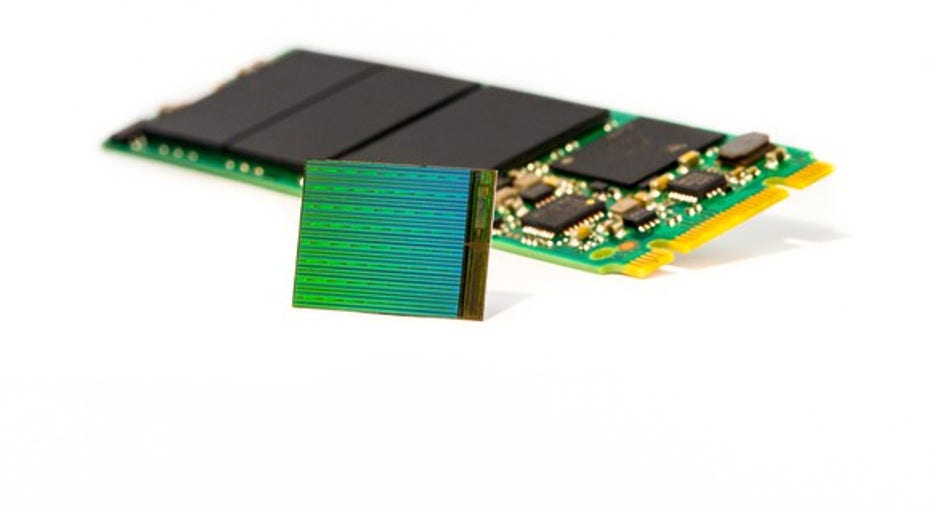3 Potential Risks to Intel Corporation Stock

Image source: Micron.
No company, not even one that is incredibly well managed and participates in secular growth trends, is immune to risks. Microprocessor giant Intel (NASDAQ: INTC), the world's largest semiconductor company by revenue, is no exception.
In this column, I'd like to highlight three potential risks that investors in this chip giant should be aware of.
1. Intel's fortunes remain tied to the personal computer market
Although Intel has done a good job of trying to find growth beyond the personal computer market -- a market that's proven challenging over the years -- the fact of the matter is that this segment still represents a substantial portion of the company's revenue, operating profit, and manufacturing scale.
Indeed, last year Intel took in $55.35 billion in revenue. Of that hefty sum, $32.219 billion came from the company's client computing group, which primarily sells components that go into personal computers. This segment also contributed $8.165 billion in operating profit, making it the largest profit machine among the company's business units.
If the personal computer market manages to decline slightly, stay flat, or even grow, then Intel's other businesses -- if they grow as expected -- should be more than enough to pick up the slack and help the company achieve some level of revenue growth.
However, if the personal computer market drops significantly in a given year, then not only do the prospects of revenue growth dim, but it could have a significant impact on overall profitability.
2. Intel's data center group is about to face significant competition
Intel's data center group has benefited from both secular growth trends as well as the fact that it has dominant share of the market for server processors.
To be clear, Intel's market share hasn't come by accident -- the company has invested significantly over many years to build best-in-class chips and other technologies in order to grow that share. However, since Intel now overwhelmingly dominates the server processor market, the opportunity to grow its share is limited (though there are non-server opportunities in the data center that Intel is gaining share in).
And, naturally, there are many companies vying for a piece of Intel's very lucrative server processor pie.
If Intel can maintain significant competitive advantages over its competition, then it should be able to continue to grow with the server market (since Intel's share is high enough that it is virtually the server chip market). However, if Intel loses market share, then that could have a negative impact on its growth rate here.
This is something that Intel investors should keep a close eye on.
3. Intel's bet on memory may not pay off
Last year, Intel announced that it would be significantly growing its bet on non-volatile memory technologies such as 3D NAND and a new technology that it developed in conjunction with memory maker Micron (NASDAQ: MU) known as 3DXPoint that's supposed to be much faster than typical NAND flash memory and can be used as both storage and main memory.
In particular, Intel said that it plans to spend $1.5 billion this year on capital equipment to refit its chip manufacturing plant in Dalian, China, to manufacture both 3D NAND and 3DXPoint. It's also likely that will continue to invest in both capital equipment as well as research and development in support of 3D NAND and 3DXPoint in the future.
If Intel can build competitive products at a leadership cost structure, then it should be able to successfully play in this market. However, if the company's technology winds up falling behind and it is placed at a major cost structure disadvantage, then it might continue to incur significant losses. Right now, the business is losing money but Intel is banking on turning it profitable down the line.
A secret billion-dollar stock opportunity The world's biggest tech company forgot to show you something, but a few Wall Street analysts and the Fool didn't miss a beat: There's a small company that's powering their brand-new gadgets and the coming revolution in technology. And we think its stock price has nearly unlimited room to run for early in-the-know investors! To be one of them, just click here.
Ashraf Eassa owns shares of Intel. The Motley Fool recommends Intel. Try any of our Foolish newsletter services free for 30 days. We Fools may not all hold the same opinions, but we all believe that considering a diverse range of insights makes us better investors. The Motley Fool has a disclosure policy.



















